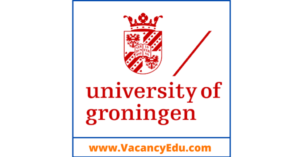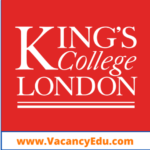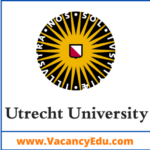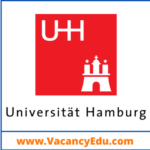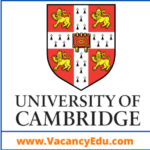University of Groningen, Netherlands invites online Application for various Postdoctoral Fellowship in their different Departments. We are providing a list of Postdoc Fellowship positions available at University of Groningen, Netherlands.
Eligible candidate may Apply as soon as possible.
(01) Postdoctoral Fellowship Position
Postdoc Fellowship Position summary/title: Post-doc position in STEM education (1.0 FTE) (V24.0125)
We are seeking candidates with a Ph.D. in STEM education or related field; a background in any of the STEM disciplines or education and a strong interest in gender inclusivity framed in queer theory, professional development training, and mixed-methods research approached. The physical work location for this position will be Groningen, The Netherlands at the Zernike Institute for Advanced Materials. This position is a collaborative project between Zernike Institute for Advanced Materials (ZIAM) and the Centre for Learning and Teaching (CLT) at the University of Groningen.
This postdoctoral position is part of the Erasmus+ Programme ‘Partnerships for Innovation – Forward Looking Projects’, which involves a consortium of ten partners, both universities and NGOs in Europe. Forward-Looking Projects are large-scale projects that have the potential of becoming mainstream and giving input for improving education, training, and youth systems, as well as bringing a substantial innovative effect in terms of methods and practices.
Deadline : 16 May 2024
(02) Postdoctoral Fellowship Position
Postdoc summary/title: Post-doc in Machine Learning for Image Processing on Embedded Devices (V24.0155)
We are looking to fill a two-year postdoctoral researcher position as a part of the Northern Netherlands Partnership (SNN) funded project through DigiAgro3 2024. The main goal of the post-doc project will be to develop machine learning models capable of robustly classifying images of agricultural crops based on markers for health state of the crop and deploying those models on a variety of low-power edge devices. The goal of the project is to enable precision farming practices, with a focus on sustainable and robust methods.
We are looking for a highly motivated and independent Postdoctoral candidate with a background in mathematics, machine learning, and/or embedded devices, who is excited to work in an interdisciplinary environment. During your Post-doc, you will work together with our vibrant and interdisciplinary team, which consists of enthusiastic PhD students, Post-docs, and industry partners with backgrounds in machine learning, robotics, sensor technology, embedded devices, as well as agriculture and plant physiology.
Deadline : 15 April 2024
Looking for more Postdoctoral Positions Click Here
(03) Postdoctoral Fellowship Position
Postdoc Fellowship Position summary/title: Postdoc NWO project Gender ratios and power dynamics in mixed-gender teams (V23.0724)
A fully funded position for a postdoctoral researcher is available at the Faculty of Economics and Business of the University of Groningen (Netherlands). The position is funded by the NWO grant “Gender ratios and power dynamics in mixed-gender teams: Implications for gender inequality in organizations” awarded to prof. Bernard Nijstad (University of Groningen) and prof. Mark van Vugt (Vrije Universiteit, Amsterdam).
This project will be supervised by prof. Bernard Nijstad (Organizational Behavior), dr. Francesca Giardini (Sociology), prof. Charlotte Hemelrijk (Biology; all: University of Groningen), and prof. Mark van Vugt (psychology, VU Amsterdam). The project is part of a larger project, which also includes two PhD students (one in Groningen, one in Amsterdam).
Deadline : 1 April 2024
(04) Postdoctoral Fellowship Position
Postdoc Fellowship Position summary/title: Postdoctoral Researcher Photopharmacology (1.0 FTE) (V24.0110)
Photopharmacology is a rapidly emerging field at the interface of the chemical and medical sciences aiming at high precision therapy. Being among the founding fathers of photopharmacology (together with the Trauner group, currently at UPenn), our expertise in molecular photoswitches and light-driven rotary motors gives us a unique advantage to design the smart medicine of the future. Unlike optogenetics, widely used in neuroscience relying on genetic modification of the organism, the basis for photopharmacology is the design of drugs with intrinsic switchable functions. Specifically, this means that in bioactive molecular components (common pharmaceuticals) designed with intrinsic light-switchable units, the biological activity can be switched on and off with high precision on command using light. The use of light as external trigger allows high precision activation of a drug in space and time in a non-invasive manner. This opens fascinating opportunities for precise targeting of e.g. tumors, and bacterial infections. High precision cancer chemotherapy, fighting bacterial resistance or infectious biofilms are among the prospects for future clinical applications. In a more fundamental scientific perspective control of specific pathways in complex biological networks open numerous opportunities. Our Nobel prize winning research on molecular machines (light-driven chiral molecular switches and motors) introducing directional motion at the nanoscale enabled us to explore the basic principles of photopharmacological agents. We pioneered photoswitchable antibiotics and quorum sensing molecules, interfering with bacterial communication and very recently demonstrated the regulation of the circadian clock in human cells.
Deadline :21 March 2024
(05) Postdoctoral Fellowship Position
Postdoc Fellowship Position summary/title: Postdoctoral Researcher Photopharmacology (1.0 FTE) (V24.0110)
Photopharmacology is a rapidly emerging field at the interface of the chemical and medical sciences aiming at high precision therapy. Being among the founding fathers of photopharmacology (together with the Trauner group, currently at UPenn), our expertise in molecular photoswitches and light-driven rotary motors gives us a unique advantage to design the smart medicine of the future. Unlike optogenetics, widely used in neuroscience relying on genetic modification of the organism, the basis for photopharmacology is the design of drugs with intrinsic switchable functions. Specifically, this means that in bioactive molecular components (common pharmaceuticals) designed with intrinsic light-switchable units, the biological activity can be switched on and off with high precision on command using light. The use of light as external trigger allows high precision activation of a drug in space and time in a non-invasive manner. This opens fascinating opportunities for precise targeting of e.g. tumors, and bacterial infections. High precision cancer chemotherapy, fighting bacterial resistance or infectious biofilms are among the prospects for future clinical applications. In a more fundamental scientific perspective control of specific pathways in complex biological networks open numerous opportunities. Our Nobel prize winning research on molecular machines (light-driven chiral molecular switches and motors) introducing directional motion at the nanoscale enabled us to explore the basic principles of photopharmacological agents. We pioneered photoswitchable antibiotics and quorum sensing molecules, interfering with bacterial communication and very recently demonstrated the regulation of the circadian clock in human cells.
Deadline : 21 March 2024
Click here for “Postdoc Application Cover Letter Template”
Click here to know “How to write a Postdoc Job Application or Email”
About The University of Groningen, Netherlands –Official Website
The University of Groningen is a public research university in the city of Groningen in the Netherlands. The university was founded in 1614 and is the second-oldest university in the Netherlands. In 2014, the university celebrated its 400th anniversary. Currently, RUG is placed in the top 100 universities worldwide according to three international ranking tables.
The university was ranked 65th in the world, according to Academic Ranking of World Universities (ARWU) in 2019. In April 2013, according to the results of the International Student Barometer, the University of Groningen, for the third time in a row, was voted the best university of the Netherlands.
The University of Groningen has eleven faculties, nine graduate schools, 27 research centres and institutes, and more than 175-degree programmes. The university’s alumni and faculty include Johann Bernoulli, Aletta Jacobs, four Nobel Prize winners, nine Spinoza Prize winners, one Stevin Prize winner, royalty, multiple mayors, the first president of the European Central Bank, and a secretary general of NATO.
Disclaimer: We try to ensure that the information we post on VacancyEdu.com is accurate. However, despite our best efforts, some of the content may contain errors. You can trust us, but please conduct your own checks too.
Related Posts
- 14 Postdoctoral Fellowship at King’s College London, United Kingdom

- 05 Postdoctoral Fellowship at Wageningen University & Research, Netherlands

- 17 Postdoctoral Fellowship at Cornell University, New York, United States

- 07 Postdoctoral Fellowship at University of Oslo, Norway

- 04 Postdoctoral Fellowship at Utrecht University, Netherlands

- 12 Postdoctoral Fellowship at University of Hamburg, Germany

- 12 Postdoctoral Fellowship at Queen Mary University of London, United Kingdom

- 28 Postdoctoral Fellowship at University of Cambridge, United Kingdom

- 12 Postdoctoral Fellowship at University of Leeds, West Yorkshire, England


